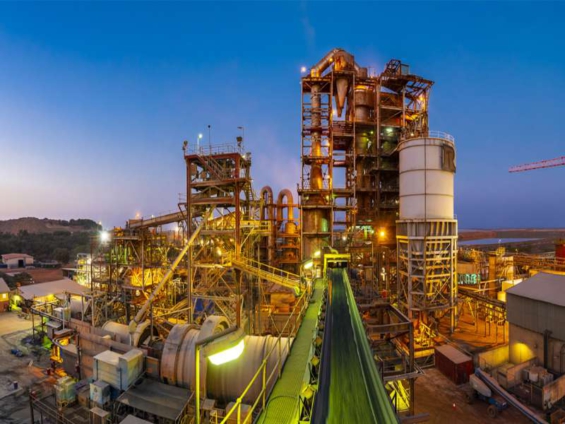The mining sector in West Africa has long been associated with environmental degradation, particularly in relation to carbon emissions. Mining activities, particularly those related to gold and other precious metals, often involve the use of heavy machinery, which consume large amounts of energy and generates significant carbon emissions.
As a result, the mining sector in West Africa has faced criticism from environmentalists, local communities, and international organizations concerned about the impact of mining activities on the environment and people's health.
In recent years, however, the mining sector in West Africa has begun to explore the use of carbon credits as a way to address its environmental impact and improve its sustainability. Carbon credits are a way for companies to offset their carbon emissions by investing in projects that reduce greenhouse gas emissions. These projects can include renewable energy, forest conservation, and energy efficiency initiatives. In the mining sector, carbon credits could be used to support projects that reduce emissions from mining activities or offset the emissions that cannot be eliminated.
One potential benefit of using carbon credits in the mining sector is that it could help improve the sector's sustainability. By demonstrating a commitment to reducing greenhouse gas emissions, mining companies could counter some of the negative perceptions associated with their activities. This could help build public trust and support for the sector, particularly among communities affected by mining activities.
In addition to improving the sector's sustainability, the use of carbon credits could provide a new revenue stream for mining companies. Carbon credits are tradable commodities that can be bought and sold on carbon markets, and the price of carbon credits can vary depending on supply and demand. By investing in projects and METSO Outotec products that reduce emissions or offset their carbon footprint, mining companies could generate carbon credits that they could sell to other companies or investors.
METSO Outotec as a key provider of the technology or solutions for processing the minerals needed for the energy transition have an essential role to play in supporting our customers in their sustainability efforts by developing minerals and metals processing practices that have a lower impact on the environment. This includes the development of energy-efficient equipment, fostering the use of renewable energy sources, recycling and reusing materials as well as reducing waste and emissions.
In addition, the industry must focus on responsible water management, minimizing water waste and reducing the intake of fresh water. Not forgetting the utmost license to operate: safety, which is the highest priority for our customers.
However, the use of carbon credits in the mining sector is not without its challenges. For example, determining the baseline for carbon emissions from mining activities can be complex, and monitoring emissions reductions can be difficult. Additionally, there is a risk that carbon credits could be used as a greenwashing tool, with mining companies using them to offset their emissions without making meaningful efforts to reduce them.
Despite these challenges, the use of carbon credits in the mining sector is gaining momentum in West Africa. For example, in Ghana, AngloGold Ashanti, one of the largest gold mining companies in the world, announced in 2020 that it had secured a $5 million credit facility to support carbon offset projects in the country. The company plans to use the funds to support a range of projects, including reforestation and energy efficiency initiatives.
In neighboring Côte d'Ivoire, the government is taking steps to promote the use of carbon credits in the mining sector. In 2019, the government signed an agreement with the World Bank to develop a carbon credit facility to support sustainable mining practices in the country. The facility is expected to provide financing for mining companies to implement projects that reduce greenhouse gas emissions and improve environmental sustainability.
The use of carbon credits in the mining sector in West Africa has the potential to improve the sector's sustainability and provide a new revenue stream while helping to address the environmental impact of mining activities. However, it is important that the use of carbon credits is implemented transparently and with a genuine commitment to reducing emissions. By doing so, mining companies in West Africa could demonstrate that they are responsible environmental stewards committed to sustainable development.
References:
AngloGold Ashanti (2020). AngloGold Ashanti secures $5m carbon credit facility. Retrieved from https://www.anglogoldashanti.com/investors/news/news-details/2020/AngloGold-Ashanti-secures-5m-carbon-credit-facility/default.aspx
World Bank (2019). Côte d'Ivoire and World Bank launch first-of-a-kind initiative to promote sustainable mining. Retrieved from https://
Www.mogroup.com
Please contact the author via Kusiyeboah@yahoo.com should you like to add comments or suggestions.
Enoch Kusi-Yeboah
Vice President, West Africa
MetsoOutotec
Latest Stories
-
Which will you vote for in 2024 Election: Honesty, Character, or Campaign Promises?
3 hours -
The ball is in Iran’s court after US pressure pays off
4 hours -
‘Japa’ sweeps Nigeria’s hospitals
4 hours -
Obuasi: Catholic Voices GH choral peace concert unites NPP, NDC
4 hours -
Lordina Supports NDC campaign in Ketu North with donation of medical equipment to Afife Health Centre
4 hours -
MTN Foundation delivers crucial technology tools to Eastern Regional Hospital
4 hours -
Galien Forum Africa: Enhaning African women’s role in climate and environmental crises
10 hours -
7th Galien Africa Forum ends with emphasis on health, innovation, and climate action in Africa
10 hours -
Ruthless Barcelona thrash Real Madrid to go 6 points clear
11 hours -
National Farmers’ Day scheduled for November 8
11 hours -
Samson’s Take: Why over 75% vote but only 5% join protests
12 hours -
Krachi East Chiefs applaud Bawumia for campaigning on issues with evidence
13 hours -
National Security Ministry dismisses Reuters’ claims that militants are using Ghana as logistical base
13 hours -
BOST and its CEO win big at 8th Ghana Energy Awards
15 hours -
Accused person in protest over alleged $3m BOST scandal discharged
15 hours

